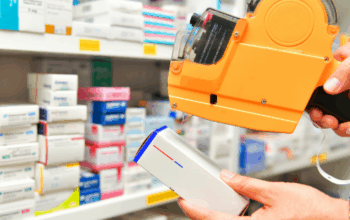Regardless of the size and nature of a business, there are always times where clients choose not to pay.
There are many reasons for this, and each case must be handled properly to ensure that money can be recovered. For example, you may have provided goods or services to a customer that has later disputed an invoice and withheld payment.
Regardless of the reason, you must take steps to recover the money that you are rightfully owed. It is no secret that the key to maintaining a successful business is to ensure that it has a healthy cash flow.
If non-paying clients jeopardise this, then your entire business can be put at risk. Following on from the Covid-19 pandemic it has been estimated that business debt in the UK will peak, with companies facing a total of £24bn in debt that is at risk of being written off.
To prevent this, business owners must take the appropriate steps to recover any money owed to them. There are several ways in which a debt can be recovered, and knowing the finer details of each one can help when choosing a course of action.
How to Prepare for Debt Recovery
If a client owes your business money, it can be a stressful and frustrating experience. Having a robust process to deal with matters relating to unpaid invoices can go a long way towards reducing the risk of having money owed.
There are several ways in which you can reduce the number of debts occurring, which include:
- Spotting the warning signs of a client that does not intend to pay (such as them being unresponsive or constantly making excuses)
- Setting up robust payment terms in your agreements
- Performing comprehensive due diligence and credit checks on all new clients
- Documenting all correspondence between you and the client (such as recording phone calls and retaining all email messages)
If you take proactive measures such as the ones listed above, you may be able to prevent a debt from occurring. Even with steps such as these, there are always those clients that will go to any length to avoid paying what they owe.
If you are in a position where you are owed money, you may already have tried to recover it yourself. This is very common, and If your attempts at reaching out to the debtor are going unanswered, it is often better to seek help from a professional.
It is worth noting that most businesses wait up to 90 days on average before involving a third party. This is usually a reasonable amount of time to allow a debtor to pay what they owe.
Commercial Debt Collection Methods
There are several ways in which a business can seek to recover a debt owed from a client. Several of the most common methods have been listed below.
Collecting a Debt Independently (Credit Control Department)
When confronted with debt, many businesses choose to recover the money themselves. This is normally done by using a businesses in-house credit control department.
In many cases, debt can be recovered just by politely and professionally reminding the debtor of their payment obligations once an invoice has been declared overdue. If the debtor remains unresponsive and is determined to not pay, it is common for businesses to issue late payment charges.
If you choose this option, you must set a deadline for the efforts of your businesses credit control team. It can become counterproductive and costly to continually chase for a debt, especially for one that may need to be escalated to a third party eventually.
Mediation and Negotiation
In some cases, it may be possible to speak to the debtor and negotiate an outcome that ends the matter amicably.
For instance, it may be possible to arrange a payment plan if some clients are finding it difficult to pay the debt in full.
Mediation should always be considered as a valuable option to businesses that are owed money, as it can resolve the matter without having to become involved in expensive court actions.
Court Action and Solicitors
Many businesses choose to take the matter of debt to the small claims courts. If your business has chosen to take this option, you should first consider the cost in both time and money that will be incurred.
Court action can become very expensive, and it can often make more financial sense to simply write the debt off. A court process will also require a lot of your time, as any disputes should ideally be resolved before commencing and all evidence relating to a case will need to be gathered.
If all else has failed, pursuing a debt through the courts may be a good option, but it must be carefully weighed against writing off the debt.
Instructing a Professional Debt Collection Agency
Professional debt collection agencies have become an increasingly popular and common way in which businesses that are owed money can recover a debt owed to them. It provides a cost-effective and fast way of recovering money and will help to resolve matters amicably.
This last point is important, especially in the case of a business. After all, if the wrong debt recovery method is chosen, it may unintentionally jeopardise any future business relationships. This will prevent a business from benefitting from the income that could result from this.
The best debt collection agencies operate by charging a flat fee plus a percentage of the payments received (acting as a commission). Whilst this cost is small compared to other methods of debt recovery, it must be factored into your decision making.
Many debt collectors specialise in particular types of debt. For instance, Federal Management is regarded as the UK’s leader in commercial debt collection. Frontline Collections, on the other hand, are known as the best choice for self-employed, freelancer or private debt collection.













